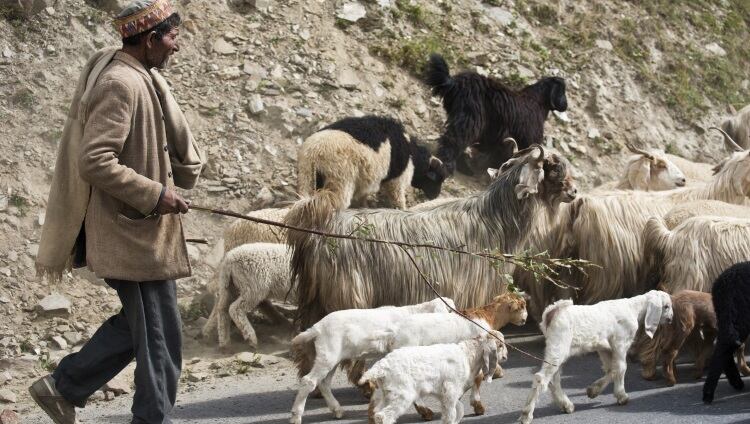The animals were bound for slaughter in Gulf countries as part of the festivities, which involve copious consumption of meat. But, under pressure from animal rights activists, New Delhi has suddenly withdrawn export permission, stranding the livestock in and around the port of Tuna.
Adil Noor, president of Livestock Exporters Association, Gujarat, told GlobalMeatNews that on 5 August, 10,000 animals, all male, had been brought to Tuna for shipment the next day, with an additional 15,000 on their way.
He said this had caused welfare problems regarding feeding the animals, with some brought to nearby farms rather than the port, he said. Criticising the sudden export block, Noor said: “Government is not ready to listen. The decision has been taken without taking into consideration the 40,000 families that are dependent on the rearing of these animals in [the states of] Gujarat and Rajasthan.”
Furthermore, said Noor, the Indian exporters would lose their reputation in the key United Arab Emirates (UAE) markets of Dubai and Sharjah. “Buyers will think that Indians have cheated them as some of us have also taken advances,” he said.
In the financial year to March 2018, India exported US$62 million-worth of goats and sheep – 20% less than the previous year, according to figures released by India’s Ministry of Commerce.
Noor claimed the animals would now have to be disposed of in India, where the affected 25 exporters could face huge losses, as domestic prices would fall because of the glut of available livestock.
Thus far, the Indian Government has been unrepentant. “There were demands from the public to stop exports of livestock for the purpose of slaughter,” Mansukh Mandaviya, Indian Minister of State for Shipping, told the Indian Express newspaper.
The right-wing Hindu Bharatiya Janata Party (BJP)-led government has taken several steps in the last few years that have hurt the Indian meat industry, which is largely run by the minority Muslim community. In 2017, almost all the slaughterhouses were closed in the country’s largest state Uttar Pradesh over alleged hygiene concerns. Meanwhile, murderous attacks on cattle transporters by radical Hindu groups, on the pretext of protecting holy cows, have also harmed India’s meat trade.
However, Mohammed Ali Qureshi, president of Mumbai Meat Traders’ Welfare Association, tried to soothe industry fears over the Gujarat ban, arguing there would be no major impact on domestic prices: “25,000 is not a big number as 300,000 [male] goats are expected to be sold during the Eid [festival] in Mumbai alone,” he told GlobalMeatNews. “The minimum price of a goat is US$220, but the big ones can fetch up to US$2,000.”
Indian Government officials had not responded to requests for comment from GlobalMeatNews at the time of publication.

